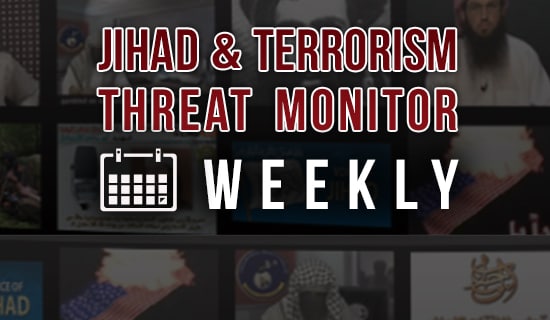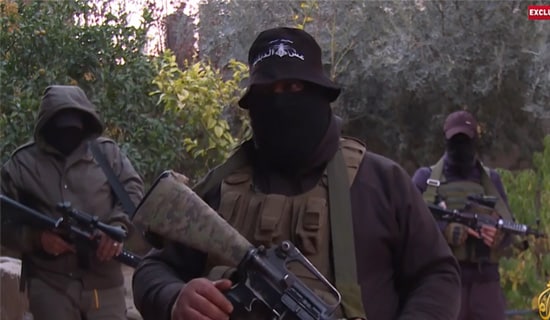When the Russian Army was compelled to perform its massive retreat from the Kharkiv region, euphemistically described as a regrouping, Russian columnists studiously avoided the topic, and searched for alternative subject matter. Many chose to comment on the fate of the British monarchy following the passing of Queen Elizabeth II. The military debacle also coincided with the anniversary of the terror attacks on the World Trade Center in New York City, and furnished a safe space.
MEMRI presents two contrasting articles that appeared in the Russian press. Columnist Boris Tolchinsky in an article for Vzglyad, does not praise the action outright, but describes the twin towers as modern Towers of Babel designed to glorify Mammon. The attack was the death knell for the American unipolar world order and Western dominance in general. Instead of a sober assessment of their position, the Americans went berserk in invading first Afghanistan and then Iraq. Their actions there plus their betrayal of allies in the Arab Spring compounded the terror problem. Now, the Americans are arming Ukraine with sophisticated weapons, while ignoring the probability that the arms now firing at Russians, will fall into the hands of terrorists.
A different sort of article was penned by Andrey Kortunov, who heads the Russian International Affairs Council. Kortunov has cautiously written about Russia's isolation as a result of the invasion of Ukraine.[1] In this article, Kortunov wistfully recalls the international collaboration against terrorism that followed 9/11. He fears that terrorism is reviving due to lack of trust between the major actors and conflicts such as Ukraine that increase the availability of weapons and weaken the global economy.
The articles by Tolchinsky and Kortunov follow below:

The attack on the World Trade Center (Source: Interfax.ru)
In an article titled "On September 11, 2001 The Unipolar World Collapsed" Boris Tolchinsky views the attack as a form of comeuppance for the US that had so recently celebrated the collapse of the USSR. He wrote:[2]
"...The World Trade Center skyscrapers, the two tallest buildings in the world at the time, epitomized for many of us that distant and mighty cosmos. They embodied the millennia-old dream of the haughty men about the Tower of Babel. They reached out towards God, to become his equal, if not spiritually, then commercially and financially powerful. In a world that was crowned by the twin towers they acted as temples, only not to God, but to Mammon, to the world capital. In that world, which was destroyed on September 11, 2001, these buildings were the most visible, understandable and powerful symbol of global American domination.
"At the turn of the millennium, the omnipotence of the 'Shining City upon a Hill' seemed an unassailable and largely justifiable course of history. Western authors eagerly proclaimed the 'end of history' and its 'arrival to the finale', the triumph of universal liberal democracy.
"Ten years before that, we had lost the country where we were born and that we loved and cherished. They constantly persuaded us that the path towards socialism was a mistake, that all the USSR's victories and achievements were nothing more than a illusion, that we should repent for the history of our country, for the deeds of our fathers and grandfathers, that the global market would judge everything and everyone, as it's universally accepted in the 'civilized world.' Instead, they offered us a path to a bright capitalist past, which is also our future.
"And there it was, all of a sudden (as no one was expecting this!) it exploded, collapsed in the most merciless way, live and in real time… It all happened before our very eyes. It was our future that collapsed that day, not anyone else's. True, today we all realize that it was an illusion, but back then it seemed clear and real.
"By our [future] I mean a common future for Americans, Russians, Europeans, the future of all who relied on the global market as an impartial arbiter, capable of sorting things out, of all who put their trust in the US as the beacon of world civilization.
"But as soon as the towers fell, it became clear: Mammon is a false god. He can only disorient and seduce; he is free to give trillions worth of loans, driving billions of people into debt servitude, he has the power to bestow upon his most loyal oligarch-priests golden palaces and the deceptive comfort on his common worshipers; but he will certainly demand obedience in repayment for all his 'loans,' and the blood of those, who refuse these terms.
"If the USSR's collapse in 1991 was the biggest geopolitical catastrophe of the 20th century, then the collapse of the twin towers ten years later became the biggest geopolitical catastrophe of this, the 21st century. It opened our century and defined its direction.
"I'm talking about the direction of the collapse of 500 years long Western global dominance, and the reemergence of a multipolar world, the normal, natural structure of human civilization, as it has always been since ancient times and before the Europeans' conquest of the New World.
"The convulsions of a unipolar world started immediately after the twin towers' collapse. The US invaded Afghanistan to search for and punish al-Qaeda extremists, the perpetrators of the 9/11 attacks, who were harbored by the Taliban. The Americans promptly overthrew the Taliban and used their military power to install a regime to their liking in Kabul.
"But exactly 20 years later, the same Taliban seized power anew in the country, and set the date of their government's inauguration, precisely, for September 11, 2021. This is not so much 'trolling,' as it is the cruel mockery of history. History enjoys such mockery, it never misses an opportunity to show people how brute force, devoid of truth and common sense, reaches diametrically opposed results to what was expected.
"Then came the armed invasion of Iraq. Saddam Hussein's despotic regime ruled there for a quarter of a century, but it held the country firmly in place, ensuring peace and order. [well, I guess except for protests, Iran–Iraq war, deteriorating economy, invasion of Kuwait, Shia uprising... - Anatoly]. The Americans accused Hussein of developing weapons of mass destruction (which turned out to be a lie), overthrew and executed [Saddam Hussein]. Order in Iraq was replaced by chaos, which consequently had opened the way for even more dangerous extremist movements than al-Qaeda, such as Islamic State.
"From a country that following the 1990 Desert Storm Operation threatened no one, Iraq has become a hotbed and breeding ground for international terrorism that threatens the entire world.
"Tens of thousands of fighters from all over the world were coming there to join the ranks of IS, while hundreds of thousands of refugees, forced to flee their homes and possessions, made their way to Europe, triggering new waves of the migration crisis. Extremists have also infiltrated the ranks of these refugees and perpetrated terrorist attacks on peaceful European cities.
"Having created chaos in Afghanistan and Iraq, the self-appointed global hegemon was still was not satisfied. The theory of 'managed chaos' adopted by Barack Obama's administration demanded new victims. The secular autocracies of the Near and Middle East, reliable US allies, became the new victims. But they fell, betrayed by the Americans and were swept away by the force of the Arab Spring. Fundamentalists, outspoken enemies of America and of all Western civilization came to replace them.
"Chaos ruled in Egypt, the largest and most important country of the Arab world. Only thanks to the army, which had the determination to assume responsibility for the country's destiny, that Egypt was saved from the fate of Iraq. Syria could've become the next victim of the Arab Spring after Iraq, but the Russian peacekeeping operation, launched at the request of the legitimate authorities of that country, put an end to the plans of the extremists and their accomplices.
"The unipolar world of American hegemony collapsed along with the twin towers, never to be reborn again. Those, who still dream of a semblance of America in our country are in fact chasing a mirage, a dream of the past: the US which served as their model of emulation, came to an end on that very day of 9/11. And everything that happens to it, to us, to the world after crossing that symbolic milestone is the natural result of the collapse of those Babel towers. They have long fallen in physical reality, but in historic time they will continue to fall, hurting everyone with their debris: Iraq, Libya, Egypt, Syria, Afghanistan and everywhere else, i.e. the places where the broken-down unipolar world vainly tries to preserve its dominion.
"As for Russia, it has nothing to reproach itself with on this sad anniversary.
"From the outset, it has supported the common struggle against international terrorism with determination and consistency. We have had our own complicated experience in fighting it in the North Caucasus and in the central cities, where terrorist attacks took place. Russia, after emerging victorious from this [Chechen] war, extended its helping hand with complete sincerity to all those, who had suffered from terrorism and were ready to resist it.
"On September 11, 2001, Vladimir Putin was the first world leader to call George W. Bush, expressing his condolences and support. However, the very same Bush invaded Iraq despite Russia's persistent warnings. It's not our country's fault that later the Russian side's arguments continued to be ignored, and the US, with its characteristic hubris, continued to act on its own arbitrariness.
"In the same way, rejecting all the arguments, comments and warnings made by Russia from the very beginning, they continue to act after [the launch of] Russia's special military operation in Ukraine. We can see what result this has brought them, and it's easy to imagine the future consequences.
"Arms that the US is supplying the Kyiv regime with criminal recklessness are firing at the Russians today, but tomorrow they could end up in the hands of terrorists from some other 'al-Qaeda,' who mortally hate America.
"A series of political and military (and, more importantly, moral failures) seems to have cooled down the hegemon's belligerence a little. In any case, Joe Biden, who served as Obama's vice-president, has so far been reluctant to send American soldiers to fight. 'America is coming back,' announced the President, at the beginning of his term. And America is indeed back, but back to where?
"Is it returning to itself, in order to deal with its problems, which are enormous, as its 30 trillion USD worth national debt? Or is it going back to ideas of 'exporting democracy' and 'controlled chaos'? It's now called 'democracies' struggle against autocracies,' i.e., a theory as ridiculous as it is false.
"Can we be sure that in the future, God forbid, provided some new tragic event occurs in America, it won't rush to find the culprits, designating guilty parties left and right, in order to install its rules far from the United States' borders?
"Wherever America returns, it will always return to its ashes, to the ruins of the International Trade Centre, to its September 11. It was the collapse of the old America and the birth trauma of the new one that we yet have to see. when (and if) the country actually finds in itself the strength to survive and overcome it."

Boris Tolchinsky (Source: Boris Tolchinsky.ru)
Andrey Kortunov believes that the world has been fortunate to avoid terrorist atrocities on the scale of 9/11, but it is necessary to move from suspicion to cooperation if the growing terrorist threat is to be combatted. Kortunov wrote:[3]
"Like everything else in this world, human memory has its own statute of limitations. As we move further and further away from the past, even the incredibly vivid and penetratingly dramatic episodes of our lives, inevitably grow dim and fade; they are gradually overshadowed by other, more recent events and new impressions.
"On 11 September 2001, I witnessed first-hand the most high-profile terrorist attack in modern history, i.e., the hijacked passenger planes crashing into the World Trade Centre towers in lower Manhattan.
"Twenty-one years later, I'm starting to doubt that it indeed happened to me: the blinding orange flashes against the blue September sky, thick plumes of smoke and grey dust slowly crawling through the narrow streets, cacophony of fire and police car sirens, crowds of bewildered people who had no idea where to run, or what to expect in the next second.
"Since 9/11, the issue of international terrorism predictably became fashionable. Like many of my colleagues, I took part in numerous conferences, seminars and research projects devoted to this issue. Moreover, I have been fortunate enough to enjoy a rare opportunity to meet prominent international statesmen such as [Russia's former first deputy minister of foreign affairs] Vyacheslav Trubnikov, Richard Armitage, Thomas Pickering, Kofi Annan and many others, who have done much to build international cooperation aimed at countering the terrorist threat.
"In a sense, their efforts have borne fruit: in 21 years, nothing similar to the 9/11 terrorist attacks have happened in the world.
"And yet we must acknowledge that the war on terrorism has never culminated in complete victory. Hundreds, if not thousands, of people have been killed in major terrorist attacks in Paris and Madrid, in Beslan, and over Sinai, in Gamboru (Nigeria), and in Mumbai (India), and this tragic list continues. Terrorist attacks became less frequent in the United States, but their number has increased in Europe, not to mention the Middle East. The recent explosion that occurred near the Russian embassy in Kabul is yet another reminder that the problem of terrorism remains unsolved. Why has the goal set more than two decades ago not been achieved?
"First, the international community has failed to reach an agreement on a common understanding of the sources, driving forces and nature of terrorism. What some actors unambiguously imagine to be terrorism, looks to others as a national liberation movement, or as a rightful struggle of a religious minority for its rights. Try bringing up the subject of Kashmiri terrorism in conversation with Indians and Pakistanis and you will find that it is almost impossible to find a common denominator there.
"Second, any successful fight against terror presupposes a high level of trust between the interacting parties involved, if only because it by definition includes the exchange of quite important and restricted information. The situation with trust in the modern world today is not good.
"There is a clear and growing deficit in this resource, not only between Moscow and Washington, but also between Beijing and Brussels, between Riyadh and Tehran, between Cairo and Addis Ababa, between Bogota and Caracas etc.
"Third, international terrorism likewise doesn't stand still. It's constantly morphing and evolving: becoming more mobile, cleverer, more resourceful. Like dangerous viruses, the terrorist threat mutates, constantly generating more and more new strains.
"Today, however paradoxically, it's not the terrorism of well-known transnational extremist movements and groups that seems particularly threatening, but that of anonymous loners and amateurs. Because such loners are more difficult to identify and neutralize, while the actions of amateurs are more difficult to predict.
"The current dynamic of advances in military technology and many developing trends in the international environment presage a new upsurge in terrorist activity in the very near future. Today's increasingly complex social and economic infrastructure, especially in large metropolitan areas, facilitates ever new potential opportunities for carrying out large-scale and high-profile terrorist attacks.
"Furthermore, international and civil conflicts (as the one on Ukraine's territory) drastically increase the availability of sophisticated arms systems for would-be terrorists.
"Let's add in this regard a general decline in the global economy's stability, which is fraught with growing social problems and the inevitable rise of political radicalism and extremism in a wide range of states. It's not hard to forecast that in this "nutrient broth" an incompletely eradicated virus of terrorism will get every opportunity for robust growth.
"It is likely that we will be lucky and a second edition of the September 11 events will not happen in the coming years. But the solution to the terrorism problem can emerge only if humanity moves to a new level of global governance. Thus, either the leading world actors will possess sufficient wisdom and energy for it, or the tax burden on our common civilization levied by international terrorism will steadily grow."

Andrey Kortunov (Source: Kp.ru)
[1] See MEMRI Special Dispatch No. 10076, Russian International Affairs Expert Kortunov: Official Assumptions Of Multipolarity Are Wrong, Russia Will Have To Tread Carefully In An International Order Characterized By 'Asymmetric Bipolarity', July 12, 2022.
[2] Vz.ru, September 11, 2022.
[3] Iz.ru, September 11, 2022.





